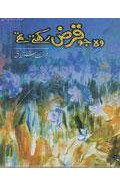Short History of Punjabi Literature
By: Rajul-i-Haque Mahmud
-
Rs 1,650.00
- Rs 2,200.00
- 25%
You save Rs 550.00.
Due to constant currency fluctuation, prices are subject to change with or without notice.
The history, research and criticism are not absolutely new topics in Punjabi literature. The early Punjabi poets have often provided brief poetic description of themselves at the end of their books. This description normally indicated some facts about their life, place of birth and year of composition. Sometimes they have also briefly mentioned about their predecessors presenting poetic critical opinions about their creations. For example, Haafiz Barkhudaar has mentioned about an earlier poet Peelu in his book Qissa Mirza Sahibaan. Habeeb has mentioned about his predecessor poet Abdullah Baabu in his book Fiqa-e Asghar. In addition, Haafiz Ranjha Barkhudaar has mentioned about poets Siddiq Laali, Peera and Maani in his book Qissa Yousuf Zulaikha. Haamid Shah Abbaasi has mentioned about poets Ahmad Shah, Haafiz Shah Jahaan Muqbal and Sayyed Waaris Shah in his book Qissa-e Heer Ranjha. Ahmad Yaar has mentioned about Siddiq Laali and Waaris Shah in his book Ahsan-ul Qissas. Miyaan Mohammad Bakhash has mentioned about Siddiq Laali, Shah Charaagh, Jaan Mohammad, Moulana Abdullah Abdi, Abdullah Tarnoutti, and several other poets, in his book Saif-ul Maluk. Similarly, Moulvi Mohammad Dilpazeer has mentioned poets Siddiq Laali, Abd-ul Hakeem Awwachi, Haafiz Burkhudaar, Haafiz Ranjha Burkhudaar, and Ahmad Yaar. And, many more such examples can be presented. In this manner, the names of those old Punjabi poets have reached us, whose books are no more present.
The history, research and criticism are not absolutely new topics in Punjabi literature. The early Punjabi poets have often provided brief poetic description of themselves at the end of their books. This description normally indicated some facts about their life, place of birth and year of composition. Sometimes they have also briefly mentioned about their predecessors presenting poetic critical opinions about their creations. For example, Haafiz Barkhudaar has mentioned about an earlier poet Peelu in his book Qissa Mirza Sahibaan. Habeeb has mentioned about his predecessor poet Abdullah Baabu in his book Fiqa-e Asghar. In addition, Haafiz Ranjha Barkhudaar has mentioned about poets Siddiq Laali, Peera and Maani in his book Qissa Yousuf Zulaikha. Haamid Shah Abbaasi has mentioned about poets Ahmad Shah, Haafiz Shah Jahaan Muqbal and Sayyed Waaris Shah in his book Qissa-e Heer Ranjha. Ahmad Yaar has mentioned about Siddiq Laali and Waaris Shah in his book Ahsan-ul Qissas. Miyaan Mohammad Bakhash has mentioned about Siddiq Laali, Shah Charaagh, Jaan Mohammad, Moulana Abdullah Abdi, Abdullah Tarnoutti, and several other poets, in his book Saif-ul Maluk. Similarly, Moulvi Mohammad Dilpazeer has mentioned poets Siddiq Laali, Abd-ul Hakeem Awwachi, Haafiz Burkhudaar, Haafiz Ranjha Burkhudaar, and Ahmad Yaar. And, many more such examples can be presented. In this manner, the names of those old Punjabi poets have reached us, whose books are no more present.
Short History of Punjabi Literature
By: Rajul-i-Haque Mahmud
Rs 1,650.00 Rs 2,200.00 Ex Tax :Rs 1,650.00
Zubin Mehta: A Musical Journey (An Authorized Biography)
By: VOID - Bakhtiar K. Dadabhoy
Rs 472.50 Rs 1,050.00 Ex Tax :Rs 472.50
The Wisteria Society of Lady Scoundrels - Dangerous Damsels Series Book 1
By: India Holton
Rs 1,916.00 Rs 2,395.00 Ex Tax :Rs 1,916.00
Ugly: Giving Us Back Our Beauty Standards
By: Anita Bhagwandas
Rs 2,396.00 Rs 2,995.00 Ex Tax :Rs 2,396.00
The Wisteria Society of Lady Scoundrels - Dangerous Damsels Series Book 1
By: India Holton
Rs 1,916.00 Rs 2,395.00 Ex Tax :Rs 1,916.00
Ugly: Giving Us Back Our Beauty Standards
By: Anita Bhagwandas
Rs 2,396.00 Rs 2,995.00 Ex Tax :Rs 2,396.00
No recently viewed books available at the moment.
Zubin Mehta: A Musical Journey (An Authorized Biography)
By: VOID - Bakhtiar K. Dadabhoy
Rs 472.50 Rs 1,050.00 Ex Tax :Rs 472.50
Short History of Punjabi Literature
By: Rajul-i-Haque Mahmud
Rs 1,650.00 Rs 2,200.00 Ex Tax :Rs 1,650.00
The Wisteria Society of Lady Scoundrels - Dangerous Damsels Series Book 1
By: India Holton
Rs 1,916.00 Rs 2,395.00 Ex Tax :Rs 1,916.00
Ugly: Giving Us Back Our Beauty Standards
By: Anita Bhagwandas
Rs 2,396.00 Rs 2,995.00 Ex Tax :Rs 2,396.00











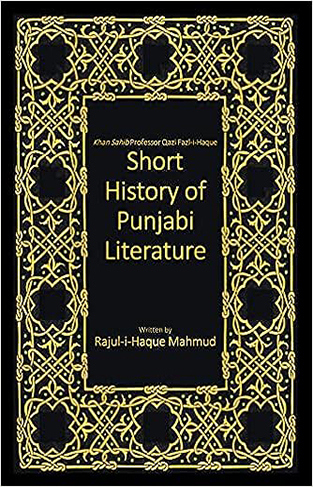
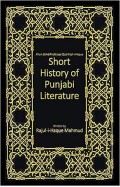
-120x187.jpg?q6)







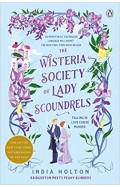
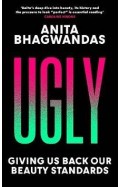

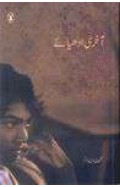
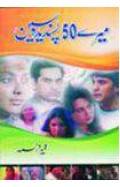
-120x187.jpg?q6)
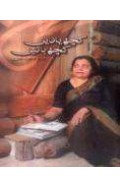
-120x187.jpg?q6)
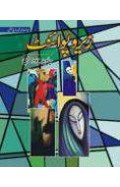
-120x187.jpg?q6)
-(Urdu)-120x187.jpg?q6)
